In recent years, one plant has been hailed as a “superfood” across the globe, yet it has been used for centuries in traditional medicine: Moringa oleifera, often called the Miracle Tree. This humble tree, native to South Asia and Africa, is now cultivated worldwide for its extraordinary nutritional profile. Did you know that moringa leaves contain more vitamin C than oranges, more potassium than bananas, and more calcium than milk? These staggering facts have placed moringa on the radar of both health experts and wellness enthusiasts.
But moringa isn’t just about numbers—it’s about results. From villages in India where families brew it as tea, to modern households adding moringa powder to smoothies, people are rediscovering its power. Whether you’re looking to support your immune system, boost energy, or simply add a nutrient-packed food to your diet, moringa may be the answer.
In this article, we’ll explore six remarkable health benefits of moringa, backed by research and tradition, and show you practical ways to integrate it into your daily life. By the end, you’ll see why this tree truly deserves its title as the Miracle Tree.
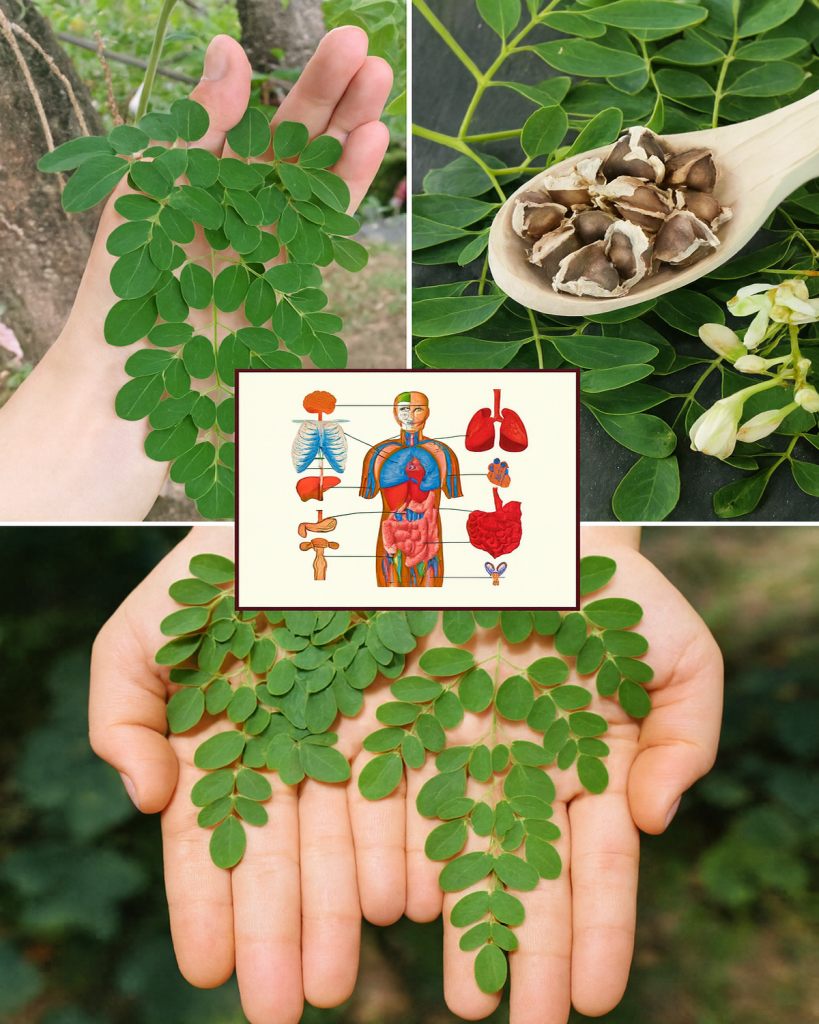
What Makes Moringa Unique?
Moringa is often called a “nutritional powerhouse” because nearly every part of the tree—leaves, pods, seeds, and roots—offers health-supportive properties.
Nutritional Snapshot of Moringa Leaves
- Protein: Contains all nine essential amino acids.
- Vitamins: Rich in A, C, and E, supporting immunity and skin health.
- Minerals: High in calcium, potassium, and iron.
- Antioxidants: Includes quercetin and chlorogenic acid, compounds linked to reduced oxidative stress.
It’s no wonder moringa is used both in traditional healing and modern supplements.
6 Health Benefits of Moringa
1. Supports Immune Health
Packed with vitamin C, iron, and antioxidants, moringa strengthens the immune system, helping the body fight infections more effectively.
Practical tip: A morning moringa tea can be an easy daily immune booster.
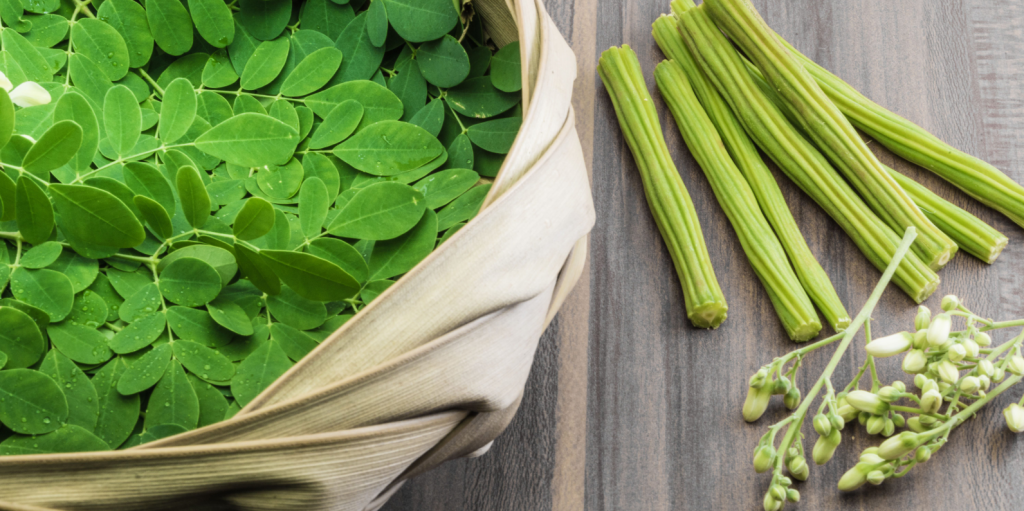
2. Helps Manage Blood Sugar Levels
Several studies suggest moringa may help regulate blood sugar, making it valuable for those at risk of type 2 diabetes. Compounds in moringa slow down sugar absorption in the gut.
Example: A small clinical study in India found that participants consuming moringa powder had improved post-meal blood sugar readings.
3. Boosts Energy and Reduces Fatigue
Thanks to its iron and vitamin B content, moringa helps combat tiredness and supports healthy red blood cell production. Unlike caffeine, it offers a steady, natural energy lift.
4. Supports Heart and Circulatory Health
Moringa’s antioxidants and potassium contribute to healthier blood vessels and blood pressure regulation. Its anti-inflammatory properties may also help reduce cardiovascular strain.
5. Promotes Healthy Skin and Hair
The high vitamin A and E levels in moringa nourish the skin, while antioxidants fight free radical damage. Many natural beauty products now include moringa oil for hydration and repair.
Everyday use: Apply moringa oil directly as a moisturizer or add a few drops to shampoo for healthier hair.
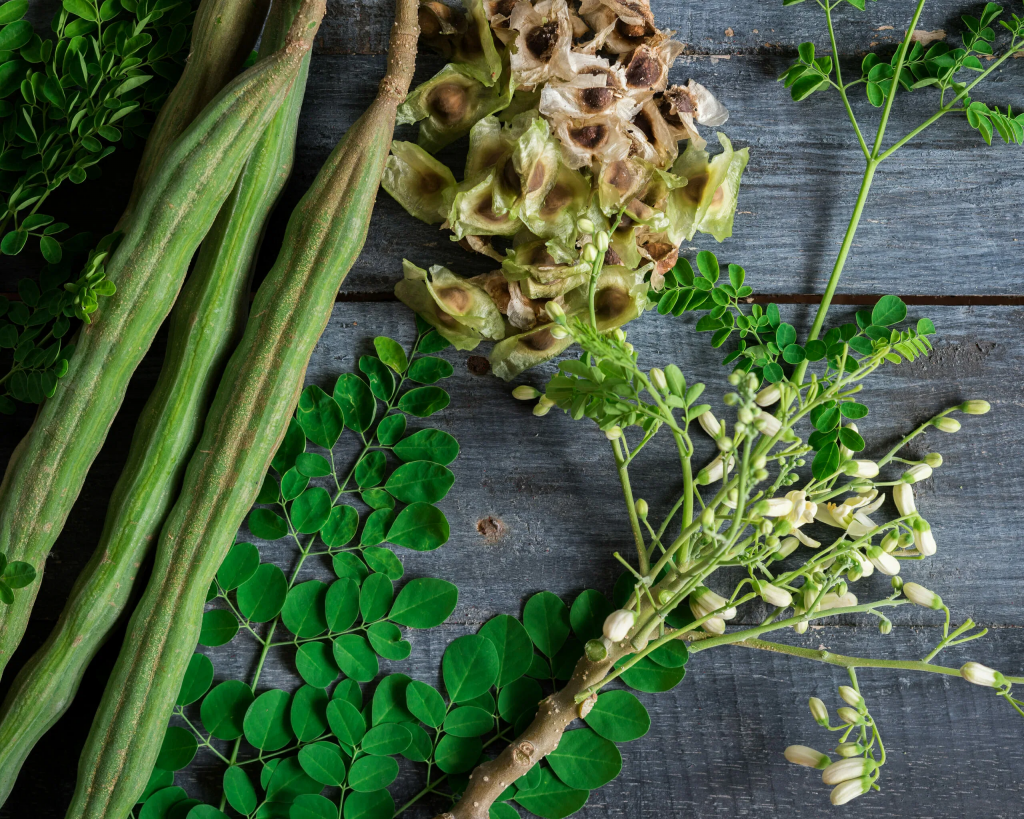
6. Supports Digestive Wellness
Rich in fiber and plant compounds, moringa helps regulate digestion, reduce bloating, and support a healthy gut microbiome. Traditionally, it has been used as a mild natural remedy for constipation.
| Health Benefit | Key Nutrient/Compound | How to Use It |
|---|---|---|
| Immunity boost | Vitamin C, Iron | Drink moringa tea |
| Blood sugar support | Isothiocyanates | Moringa powder in meals |
| Energy & fatigue | Iron, B vitamins | Add to smoothies |
| Heart health | Antioxidants, Potassium | Use in daily cooking |
| Skin & hair | Vitamin A, E, Moringa oil | Topical application |
| Digestive health | Fiber | Leaf powder in soups |
How to Use Moringa in Daily Life
Fresh Leaves
- Cook like spinach in soups, stews, or stir-fries.
- Add to omelets for a nutrient boost.
Moringa Powder
- Blend into smoothies or juices.
- Stir into soups or sprinkle over salads.
- Mix into energy bars or baked goods.
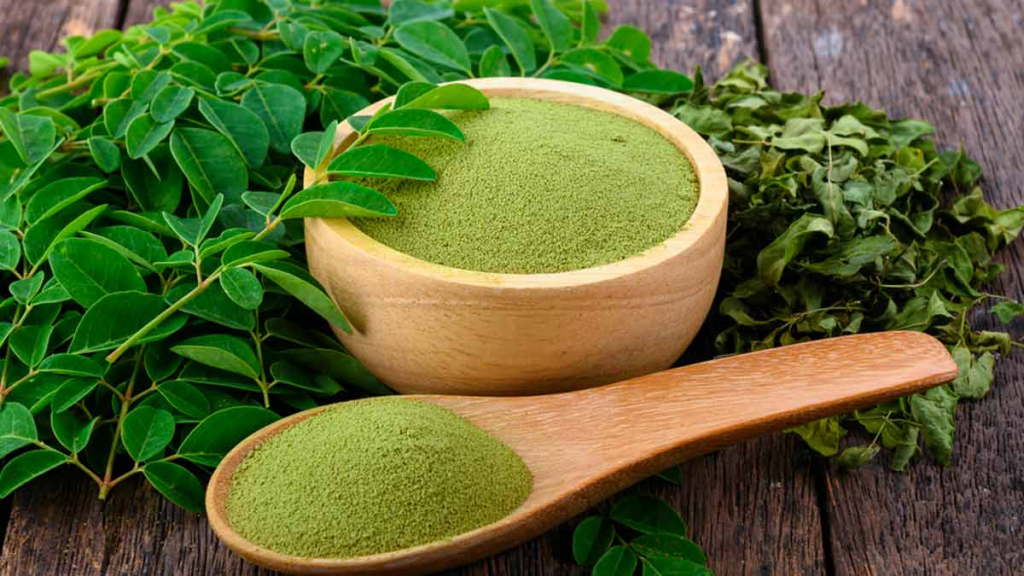
Moringa Tea
- Steep dried moringa leaves in hot water for 5–10 minutes.
- Add lemon or ginger for flavor and extra health benefits.
Moringa Oil
- Apply as a natural skin moisturizer.
- Use a few drops for scalp massage to nourish hair roots.
Real-Life Case Study
Maria, a 38-year-old teacher, struggled with constant fatigue despite eating a balanced diet. After adding a teaspoon of moringa powder to her morning smoothie, she noticed improved energy and focus within weeks. Her experience highlights how small dietary changes can create meaningful improvements.
Safety and Precautions
While moringa is safe for most people, moderation is key.
- Pregnant women should avoid moringa root and bark due to possible uterine effects.
- Overconsumption may lead to digestive upset.
- Always consult a healthcare professional before starting moringa supplements, especially if you are on medication.
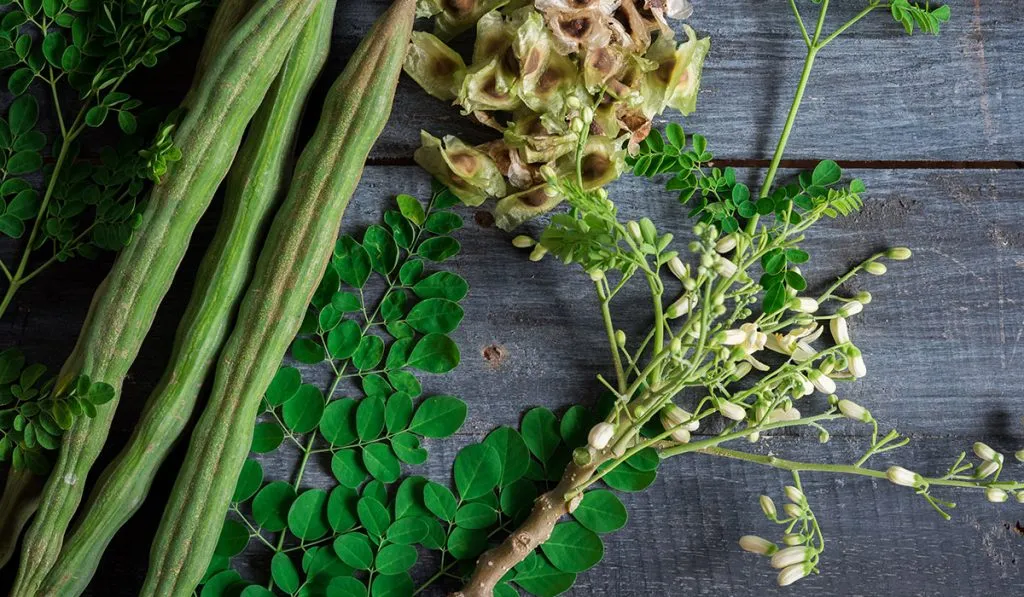
Conclusion
Moringa truly earns its title as the Miracle Tree. From boosting immunity and energy to supporting heart, skin, and digestive health, its benefits are both vast and versatile. With so many ways to enjoy it—tea, powder, fresh leaves, or oil—it’s easy to integrate moringa into your lifestyle.
Frequently Asked Questions
- Can I take moringa every day? Yes, in moderate amounts, moringa is safe for daily use.
- Is moringa better fresh or powdered? Both are beneficial—fresh leaves for cooking, powder for convenience.
- Does moringa replace medication? No, it complements a healthy lifestyle but should not replace prescribed treatments.
- Can children take moringa? Small amounts of leaf or powder are generally safe, but always consult a pediatrician.
Disclaimer: This article is for informational purposes only and does not replace professional medical advice. Always consult a healthcare provider before adding new herbs or supplements to your routine.




